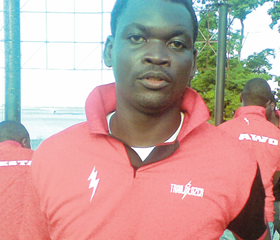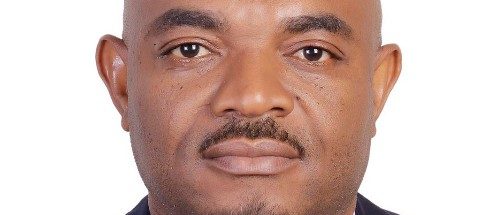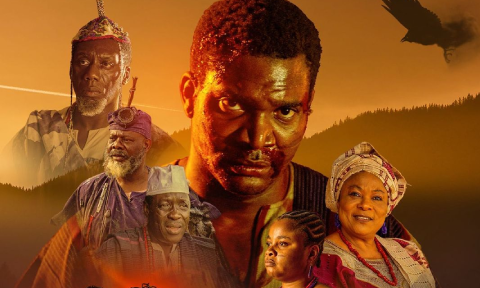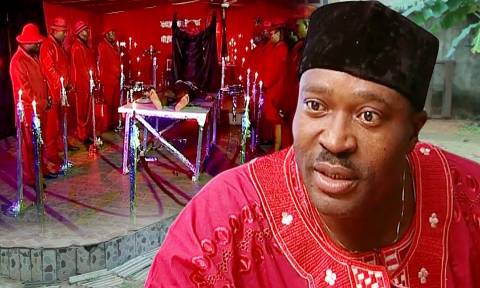
Babatunde Olamitundun Onikoyi is a theatre scholar, artiste, film critic and telecom operator. He is the initiator of the Wole Soyinka/Dapo Adelugba Prize for Literature which is in its fifth year. The University of Ibadan Theatre Arts graduate shares with TONY OKUYEME the idea behind the award, stage drama productions on campus, the film industry in Nigeria, and how his experience influenced his career in the telecommunication sector.
Tunde Onikoyi, as he is simply called, bears within him a certain passion for the creative art, a feeling that finds expression in writing, directing and acting on the stage and researching into the theatre and film media. Nothing about him suggests his background as an artiste until he begins to talk about the medium and his experiences on the stage. He usually cuts the image of a bank worker but behind that corporate toga is an inspiring character of a thespian.
Given that he works in a telecommunication company, where is the meeting point between theatre and telecommunication? You ask.
“I am a professional telecommunication operator. I work with Globacom Communication. I have worked with them for four years,” he says, adding, “apart from that,I am also a researcher who is writing his doctoral thesis on Theory of Film at the University of Ibadan. I worked with Bookcraft Publishing Company,editing theatre works, drama and other things before I left for Globalcom. I worked with Bookcraft for a year.”
The link between Theatre Arts and telecommunication, he notes, is so inextricably interwoven into many ways, not completely as the case maybe.
“First of all my background is in the theatre. I studied Drama at the University of Ibadan. In my Masters degree (M.A) programme I switched over to film. And now I am doing my doctorate degree (PhD) on film and as well,which of course is inextricably linked to the theatre.
“So there is no divorce, the marriage is completely between theatre and film. And again, to link it up with telecommunication, they are both imaginative communication of significant experiences. In other words, they are communication by default; that is theatre and film. And my instinct as a theatre or film person has given me the leverage to work in the customer care department of Globalcom Telecom network. And since I am actually dealing with people taking down issues and trying to solve their problems, it is part of the functions of communication. My background as a theatre person offers me that opportunity to relate not just as a customer relation person but also as a Public Relations Officer (PRO). But the confidence that I have actually gathered overtime as a performer who relates with the audience, actually flows in easily to work in the customer care department of Globalcom. So there isn’t any divorce,” Onikoyi explained.
He recalls his growing up years with palpable nostalgia, adding that his experience in secondary school enhanced his interest in the theatre. His father, he says was an actor and greatly influenced him. “Growing up was beautiful,but it had contradiction. I went to Fountain School in Surulere, Lagos, which still exists till today. It is run by the Olaitan family and clan. Because my father had to move from Surulere where it was situated to another place Ojodu, I attended Isheri Grammar School,Olowora, Isheri,Lagos. I think that was where the background in the theatre began. I was a member of the drama, music and the press group respectively. So it was so easy to delve into all these things. The experience prepared me to delve into drama, although when I left secondary school,l was more interested in writing.
“Then I find myself in the department of Theatre Arts University of Ibadan. Theatre involved writing and so on, so there was no hard demarcation between the two. If you were not writing a creative work,you are doing a criticism of a creative work. So I find myself experienced in those areas,and then the love of the theatre began. But then I was always taking courses in English to build myself up.”
“My father Rasheed Onikoyi was an actor. I think he should be a contemporary of Olu Jacob. My father played Oba Danlola in Wole Soyinka’s Kongi’s Harvest. He died in 1992. He was a very beautiful actor. So that greatly influenced my interest in the theatre. My mother was a medical person. She was with the Armed Forces Medical Services. My father was actually trained at the Royal Academy of Arts,England. He played Abraham in the defunct television drama services Sounds of Destiny. It was a very beautiful soap opera, and it made me know the other side of my dad very well. He acted in Bisi the Daughter of the River and other plays.
“As I said, that influenced my interest in the theatre. And back in the university, in my undergraduate days,I featured in several stage drama productions. I was in Kongi’s Harvest, I played the role of Organising Secretary; I was in Debo Sotimirin’s Onion Skin, Ahmed Yerima’s The Mirror Cracks, Ola Rotimi’s The Gods Are Not To Blame (I played the role of Baba Fakunle). I also featured in Tea House, a few American and British plays, among others. Also, I directed a lot of plays, some of which include The Gods Are Not To Blame, Kongis’s Harvest, Beatification of Area Boys, and others. In 2005 when Harold Pinter won the Nobel Prize for Literature, I was opportuned to also direct his play Birthday Party.”
Onikoyi believes that his experience in the theatre influenced his career even as a telecom operator. “My theatre background made me what I am today.”
For him, the Nigerian film industry, Nollywood, is still going through its early development stage. According to him, it is growing but not fully developed. “I think that in the next few years, I will think highly of it. The Nigerian film industry is growing,but that does not mean that it is has fully developed. There is difference between growth and development. In other words, you are talking about increment and reputation. Bollywood to an extent is grown and national but I cannot say Nollywood has fully developed. It has growth, sincerely I must say. It is the largest employers of various chains of commands in production. It is the third largest film industry in the world,after Hollywood and Bollywood.
“As for the name Nollywood, I was one of those who used to criticize it because I saw it as an imperialistic naming for the Nigerian film industry as the case maybe. But whether we like it or not,we as Africans are used to copying,not because we intend to copy but it actually gives us the opportunity to draw out our own potentials. I think that if American had named its film industry “Gbe gbum”,Nigerians would have looked for a facsimile of Gbe gbum. We keep talking about change,who wants to change? The word Nollywood described two things-the films that are being produce in Nigeria and the film productions made in Nigeria,essentially,the film industry of Nigeria. Film is gathering momentum,it is actually taking the entire landscape,” he hinted.
On the inspiration for initiating the Wole Soyinka/Dapo Adelugba Prize for Literature, he said that it grew out of his experiences as a Theatre Arts graduate and his desire to give back to the society.
“It was because I felt that I had gained a lot from the University of Ibadan. The university made me,so it was just like giving back to my school and basically I wanted the students to show up to the recession to read,and take the bull by the horn without mincing words. It is a cruel world now. Nigeria will not offer you anything; Nigeria is even waiting for you to offer it something without anything in return. So I think it is a way to inspire the students that you can make something out of what you have. You can still be a hero basically with what you have. The prize was instituted about four years ago. We are actually working towards the fifth anniversary. The winner of the prize goes home with a plaque,books and cash prize as well. There are consolation prizes for participants. We also have a prize for the lecturer of the year.”
Onikoyi however has strong words for students of the Theatre Arts department. His words: “I think it has been too commercialised. Let me use the University of Lagos and also in University of Ibadan,students are no longer committed. They are more interested in the outside productions than the internal productions. During my time,we did just stage productions for examination sake,we also did it to develop ourselves. It was something we needed to do. But you don’t find that commitment any more. These days students do their productions and read to pass,but the average Theatre Arts student today,wants to work in a bank when he graduates.”



















